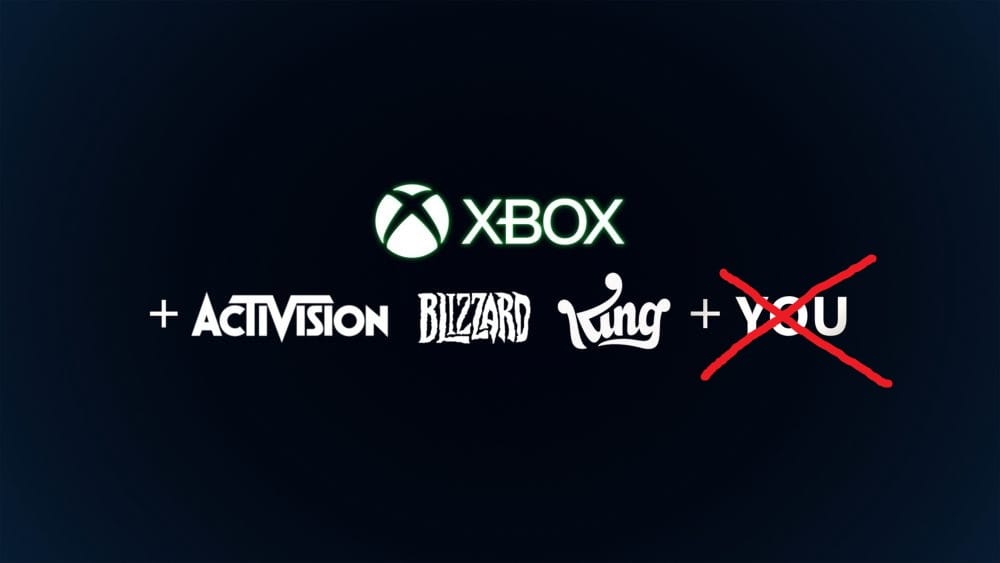Microsoft digs deeper as Unity digs itself out | This Week in Games

Egads, what a week.
I ran a column Tuesday figuring that Sony's PS5 Pro unveiling would be the week's biggest news. But now we've got Xbox layoffs and Unity celebrating the first anniversary of its Runtime Fee announcement by killing the thing once and for all, so here we are again. Let's get into it.
Microsoft enjoys mass layoffs as a luxury
Earlier today, Xbox announced its third round of mass layoffs in its gaming division this year, as it cut another 650 staff, citing the Activision Blizzard acquisition among the reasons.
That makes for a minimum of 2,550 people laid off from Microsoft's gaming business this year as the company emphasizes a "sustainable cost structure" in the wake of the Activision Blizzard deal. Which is strange, because the business was never even close to unsustainable in the first place.
The past four quarters have seen Microsoft post net income of $22.3 billion, $21.9 billion, $21.9 billion, and $22 billion, respectively. Those are the four most profitable quarters the company has ever had. The $88 billion it reported in profits over the past year more than doubles the $39 billion in profit from the last full year before the pandemic.

As much mockery and grief as people have justifiably given Embracer for the entirely foreseeable waves of layoffs it instituted after its years-long mid-tier acquisition spree caught up with it, at least those layoffs made more sense because the company was actually losing money. Microsoft has all the money it needs to pay these people and still be obscenely profitable – Microsoft's profits last quarter were more than its entire revenue for some quarters as recently as FY 2017 – but the demands of a publicly traded company mean this quarter's obscenity must always be made quaint in comparison to next quarter's.
The scope of these Xbox layoffs prompted by the Activision Blizzard acquisition are staggering, not the least of which because it's not like Microsoft was acquiring a company known for bloat.
Activision Blizzard was one of the most consistently profitable publishers in the games industry for years. As CEO, Bobby "I think we have a real culture of thrift" Kotick pinched every penny, pushed every advantage, and regularly celebrated record business performance with mass layoffs. Activision Blizzard simply did not make a habit of keeping unnecessary people around in the first place.
In Activision Blizzard's last annual report before the Microsoft acquisition, the company reported employing about 13,000 people. The 2,550 people Microsoft has laid off from its gaming business this year represents almost 20% of the headcount brought on board by the acquisition. It's quite likely even larger than that, as Microsoft didn't give a headcount number for the May round of layoffs and studio closures, and declined to clarify whether they were part of the previously announced 1,900 cuts, or in addition to them.
That all this comes against a backdrop of Microsoft investing billions and billions and billions and billions and billions and billions into AI – particularly AI with serious questions about whether it can ever be profitable or legal (never mind ethical) – is maddening. And not entirely unlike watching Meta burn $4 billion a quarter chasing AR/VR while the entire company stays richly profitable, even though it too has a penchant for unnecessary mass layoffs.
I don't really know what to tell you here other than "Some of these companies simply have way too much money for our own good."
Unity on the road to redemption?

The other big story today is from Unity, which announced it was giving up on its Runtime Fee scheme, a deeply unpopular policy it introduced a year ago today that changed the fundamental way Unity made money from developers and retroactively applied these terms to existing contracts and all games ever shipped with Unity, no matter how old or outdated.
"Deeply unpopular" may be an understatement, as developers trashed Unity in public and protested en masse. After as week and change, Unity revised its Runtime Fee to make it modestly more palatable (but still a fundamental violation of the trust developers had placed in it). The following month, Unity CEO John Riccitiello stepped down, and earlier this year, Unity Create head Marc Whitten left as well. Ordinarily you might the CEO's resignation to be the end of it, but Whitten was the public face of the company's response to the Runtime Fee outrage (almost certainly because John Riccitiello was manifestly unsuitable for the role).
[UPDATE: As a pair of readers noted, the executive overhaul didn't stop there. On the day the Runtime Fee was announced, Unity's senior management page listed a leadership suite of 10 people. A year later, only two of them are still there.
However, the overhaul stopped short of the board of directors. Of the 12 members of the board from a year ago, 11 remain, with Riccitiello the only one to step down. The current 13-person board's new faces are Riccitiello's direct replacements, current CEO Matthew Bromberg and now-former interim CEO Jim Whitehurst.]
In backtracking on the Runtime Fee policy, Unity said it is also hiking the prices for Unity subscriptions at companies bringing in more than $200,000 a year in revenue and funding. Price hikes are never a popular move, but this one may go down more easily with developers that have seen what the alternative would be. And yes, Unity probably needed to increase revenue somehow, seeing as how it has never posted a net profit in 20 years of doing business.
So is that it, then? Is all forgiven for Unity's customers?
Bear with me for a moment as I bring up a tangential anecdote. A couple years ago, I was at GDC, chatting with a PR rep from a company that had a big sexist workplace scandal some years prior.
They talked about everything the company had done to move past that scandal, and asked me if I thought the rest of the industry would now consider it a settled matter.
I told them I couldn't speak for the rest of the industry, but I would never consider the company to be working from a clean slate so long as the senior leadership responsible for the company culture was still there. Even if we assume those leaders never personally committed any of the offenses we heard about, they were either utterly ignorant to the problems pervading the company, or they were complicit in them by failing to take proper action to protect their employees.

My attitude toward Unity – really, any company that demonstrably messed up – is much the same. I need to know that the mistakes have been acknowledged and corrected, and I need to believe the people most responsible for the mistakes have been held accountable. The easiest way to convince me of that is cleaning house.
Riccitiello is gone, and so is Whitten. Even Riccitiello's replacement is gone, as Jim Whitehurst's tenure as interim CEO lasted just long enough for him to fire a whole bunch of people and close a ton of offices, generously giving incoming permanent CEO Matthew Bromberg a chance at a fresh start without the ugliness of those cuts being held against him.
I'm sure there were other executives and perhaps directors at the company who had been pushing for the Runtime Fee and are still there, but killing the policy and having the most prominent members of the leadership group fall on their swords was in my view a necessary series of steps that had to be completed before there was any chance for trust to be rebuilt.
As an outside observer, I think Unity has done just about everything it can to earn a second chance. Whether or not that's actually enough to earn it is up to developers, of course, and will be decided on a case-by-case basis. I'm not sure I've ever seen a company do quite so much in an attempt to wipe the slate clean.
I honestly wish the rest of the industry were as good about acknowledging its mistakes and moving past them in such clearly visible ways.
If you liked this piece, please consider signing up for the Unlosing Writer newsletter. It's free, but if you enjoy the work, I would greatly appreciate a monthly subscription or a one-time tip.
